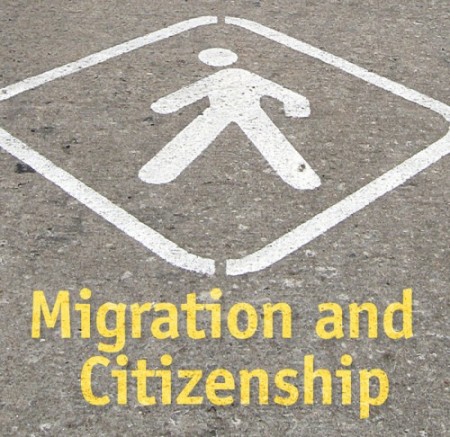UKIP’s recent by election victory proves it: the public are extremely worried about immigration and its impacts on labour markets and communities. The pressure is increasing on politicians of all parties to ‘do something’ about immigration.
But this is nothing new. A quick look at immigration laws in the last decade suggests that there has been no shortage of efforts to do something. The most recent Immigration Act 2014 is the fourth major Act in ten years, and the eighth since 1996. During its nine years in office, Labour created eighty-four new immigration offences (Aliverti 2012). These laws have had significant consequences for non-citizens, consequences that have been the subject of interest across a wide range of social science disciplines.
Often forgotten, though, are the consequences for citizens and the idea of citizenship. Our blog series on migration and citizenship hopes to address this omission.
One result is obvious: the long queues of people, nationals and non-nationals alike, that snake around Heathrow’s immigration hall if you’re unfortunate enough to arrive at a busy time. Citizens are not subject to immigration controls, but—here is the rub—they must first prove that they are ‘citizens’ in order to avoid them.
The impacts of immigration controls reach beyond the irritation of waiting in long queues. In 1987, the Immigration (Carriers Liability) Act introduced a per-passenger fine imposed on transport operators for bringing in passengers travelling without valid documents. This means that UK national truck drivers, airline personnel and ferry staff are required to act as immigration officers, checking their vehicles for potential illegal entrants and checking passenger documents. This has been strictly applied: between 1987 and 2012 the government collected over £260 million in fines.
Since 1987, the responsibility to check has been extended to many other groups. Those ‘harbouring’, facilitating illegal entry or deliberately employing an ‘illegal immigrant’ may be subject to criminal prosecution. Immigration compliance and enforcement (ICE) teams work with local authorities and other local partners to ensure compliance “for the benefit of the community”. Banks, employers, social workers, university lecturers, and, thanks to a 2014 Act, landlords, are required to check identity and legal status, or monitor the behaviour of those subject to immigration controls (such as attendance at lectures or moving house). As with the immigration queues, people must prove they are citizens in order to avoid these controls. Even still, all citizens will have documents checked and there is always the problem that ethnic minority citizens may be more likely to be considered ‘migrants’ than, for example, middle class white people.
Assessing the costs
While these controls may seem simply a minor inconvenience, it can have consequences that are more serious. Jacqueline Stevens, a political scientist at Northwestern University, estimates that US Immigration and Customs Enforcement illegally detained or deported 4,000 US citizens in 2010 alone. The majority were black, with low educational achievement, and often had mental health problems (Stevens 2011). There is no available research for the UK, but there have been cases of illegal removal and immigration detention of UK nationals. Children with citizenship may be removed with their parents, or separated from them through immigration detention. UK nationals who earn under £18,600 are not able to sponsor a partner or spouse for entry. This means that 47 percent of all British citizens in employment would not qualify as a sponsor. Among British women in employment, it is 61 percent. Thus, for British citizens on low wages, or who are unemployed or disabled, it is virtually impossible to live with a non-EU partner in the UK (Anderson 2013).
EU mobility further blurs the line between citizen and non-citizen. The Habitual Residence Test, which requires new arrivals to have been a resident for a minimum period before they are able to claim social assistance, has been increasingly tightened to crack down on ‘migrants’ and ‘welfare tourists’. But according to agencies, the biggest impacts are on UK nationals returning to the country after a period abroad who are also prevented from claiming benefits.
It’s time we paid more attention to this. While there has been considerable attention paid to the impact of immigration on the UK, the impact of immigration controls has been rather overlooked. I hope this blog series will begin to address this lacuna.
This post is part of Migration and Citizenship, our series hosted in collaboration with Oxford COMPAS.
———–
References
Aliverti, A. (2012) ‘Making People Criminal: the role of criminal law in immigration enforcement’, Theoretical Criminology 16(4): 417-434.
Anderson, B. (2013) Us and Them? The dangerous politics of immigration control, Oxford: Oxford University Press.
Stevens, J. (2011) ‘U.S. government Unlawfully Detaining and Deporting U.S. Citizens as Aliens’, Virginia Journal of Social Policy and the Law, 18: 606-720.









No Comment